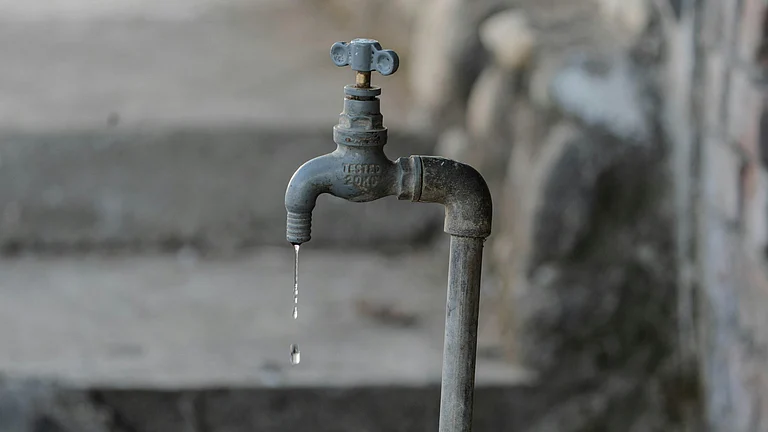The National Green Tribunal (NGT) has pulled up the authorities over over the outbreak of jaundice at a village in the district, and also castigated the Jammu and Kashmir Pollution Control Committee and the Shopian Deputy Commissioner for filing a "casually prepared" report on the matter.
The bench of NGT Chairperson Justice Prakash Shrivastava said the authorities failed to take remedial measures to ensure the residents of Pahnoo village had access to clean drinking water.
It directed the Union Ministry of Health and Family Welfare and the Deputy Commissioner of Shopian to ensure the village had proper sanitation and safe drinking water.
The green body took suo motu cognisance of a news report regarding several children in the village getting jaundice earlier this year ostensibly because of drinking contaminated water.
In its order passed on November 6, which was uploaded on the tribunal's website on Tuesday, the bench, also comprising judicial member Justice Arun Kumar Tyagi and expert member A Senthil Vel, noted the J&KPCC and the Deputy Commissioner of Shopian have filed their reports in the matter.
While the district officer initially submitted a report about 21 children being diagnosed with jaundice, he did not disclose the details of the individuals who suffered from the disease from June to August, the bench said.
The tribunal also said the J&KPCC and the district officer filed action taken reports without mentioning other key details. "It is evident from the material on record that reports have been casually prepared."
It said these reports failed to look into several aspects, including what was the source of supplying drinking water in the area, whether any untreated sewage or other pollutant was being discharged in the source, what remedial measures were required and whether the requisite steps had been taken.
Referring to some Supreme Court verdicts, the tribunal said the Right to Life under Article 21 of the Constitution includes the right to enjoyment of pollution-free water. It underlined that a United Nations (UN) General Assembly resolution of July 2010 acknowledged that the right to safe and clean drinking water as well as sanitation were basic human rights necessary for the enjoyment of life.
It noted that an earlier J&KPCC report had revealed that the drinking water in the area was contaminated, having faecal coliform levels or a colony-forming units (CFU) of 25/100 ml, which according to prescribed standards had to be "ideally zero."
"The outbreak of jaundice by itself proves contamination of drinking water and the presence of faecal coliform in drinking water supply of houses with high counts more than 25 CFU/100ml by itself conclusively establishes discharge of untreated sewage in the water body or stream from which water for drinking is being drawn," the tribunal said.
It said the outbreak of the disease and high quantity of faecal coliform in the water showed that requisite remedial measures for ensuring uncontaminated drinking water had not been taken.
The tribunal directed the Principal Secretary of the Ministry of Health and Family Welfare and the Deputy Commissioner of Shopian to "take remedial measures for ensuring proper sanitation, supply of safe and clean drinking water" within three months.
It also asked them to prevent the discharge of untreated sewage and other pollutants in water bodies, streams or rivers; and tapping untapped drains and setting up sewage treatment plants (STPs) within the period.































